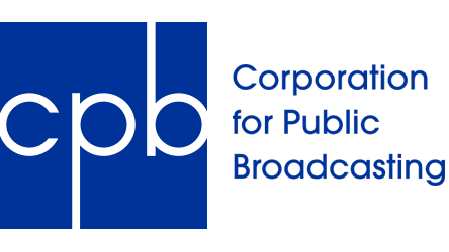UPDATED WITH REACTIONS: Corporation for Public Broadcasting to Shut Down
Following loss of federal funding, most staffers to be laid off on Sept. 30; small transition team will continue working through next January

The professional video industry's #1 source for news, trends and product and tech information. Sign up below.
You are now subscribed
Your newsletter sign-up was successful
WASHINGTON—In a development that will end nearly 60 years of work to establish and sustain public media, the Corporation for Public Broadcasting has announced that it will begin an orderly wind-down of its operations.
The move comes after the passage of a Federal rescissions package that clawed back previously approved funding and the release of the Senate Appropriations Committee’s FY 2026 Labor, Health and Human Services, Education, and Related Agencies (Labor-H) appropriations bill that excludes funding for CPB for the first time in more than five decades.
As part of the plan to wind down operations, CPB told its employees Aug. 1 that most of its staff positions will end with the close of the fiscal year on Sept. 30.
A small transition team will remain through January ensure a responsible and orderly closeout of operations. The CPB said that this team will focus on compliance, final distributions and resolution of long-term financial obligations, including ensuring continuity for music rights and royalties that remain essential to the public media system.
“Despite the extraordinary efforts of millions of Americans who called, wrote, and petitioned Congress to preserve federal funding for CPB, we now face the difficult reality of closing our operations,“ CPB president and CEO Patricia Harrison said. “CPB remains committed to fulfilling its fiduciary responsibilities and supporting our partners through this transition with transparency and care.”
President Donald Trump and Republicans who have long sought to eliminate federal funding for public media, managed to achieve that goal this year with the passage of the rescissions package and plans to eliminate future funding for CPB.
CPB funding is relatively small part of the federal budget, just $535 million in fiscal-year 2025. PBS and National Public Radio receive most of their funding from other sources. But CPB’s demise is likely to have a major impact on smaller local stations, vendors of broadcast equipment and funding for emergency alert systems, which have traditionally been financed by the CPB. The layoffs will also cost the industry generations of experience in TV technologies, broadcasting and public media.
The professional video industry's #1 source for news, trends and product and tech information. Sign up below.
The CPB was established 1967 to “build and sustain a trusted public media system that informs, educates, and serves communities across the country,” it said.
In response to the news, Kate Riley, president and CEO of America’s Public Television Stations, said that “America’s Public Television Stations are deeply troubled by the current situation that has made it necessary for the Corporation for Public Broadcasting to begin winding down its operations. As we have warned all along, the impact of the elimination of essential and necessary public media funding for local stations, through CPB, is real and imminent."
“These rescissions of funds have already begun to dramatically impact the vital services that local stations provide to communities across our country," she added. "And now it will further affect local stations through the closure of CPB."
She stressed that the CBP provided support for local stations in a variety of ways, including: direct grants to local public media stations; cost-effective collective negotiation and payment of music licensing fees; support for the public media interconnection system that connects all local stations and is essential for the transmission of emergency alerts and warnings over public broadcasting infrastructure.
“Local stations will now have to pay for these costs out of their individual station budgets, which have already taken a dramatic hit from the elimination of federal funding. In many cases, the transfer of these newly unfunded costs will simply be too high for local stations to bear," she continued. “Last week, the Senate Appropriations Committee missed an opportunity to extend a desperately needed lifeline to local public media stations that are already cutting essential services and staff and, in some cases, planning for their closure as a result of the rescissions of public media funding last month. Without the restoration of some level of support for local stations and the essential support they received through CPB, the program and staff termination and reduction announcements we have already seen from local stations will continue and communities will be left without access to indispensable services from lifesaving public safety communications to proven effective educational resources and locally created content that connects and reflects communities throughout this country."
“We extend our deep gratitude to CPB President and CEO Patricia Harrison and the over 100 CPB employees who are shining examples of unwavering and honorable public service to our country," she added. "For nearly 60 years, CPB has been exceptional stewards of the federal investment in public media, tirelessly working to strengthen and expand our system to serve the American people."
“We remain hopeful that as the appropriations process moves forward Members of Congress will reflect the clear will of the American people and restore essential federal funding for local stations’ ability to help keep Americans safe, to educate America’s children and to celebrate and preserve the stories, people and culture of hometowns across this country," she concluded.
George Winslow is the senior content producer for TV Tech. He has written about the television, media and technology industries for nearly 30 years for such publications as Broadcasting & Cable, Multichannel News and TV Tech. Over the years, he has edited a number of magazines, including Multichannel News International and World Screen, and moderated panels at such major industry events as NAB and MIP TV. He has published two books and dozens of encyclopedia articles on such subjects as the media, New York City history and economics.

